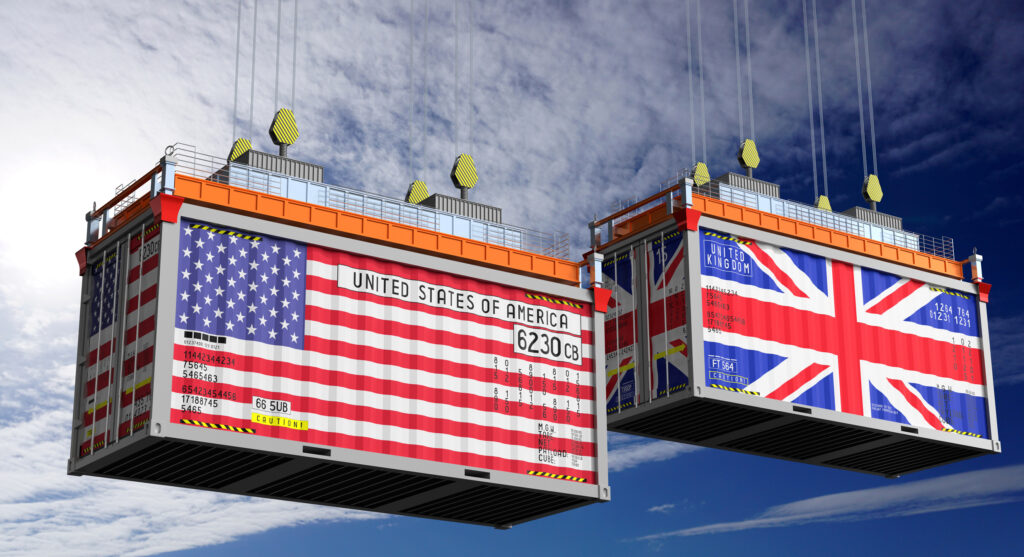Good for beef, less so for arable – UK-US trade deal verdict
 © Adobe Stock
© Adobe Stock Farm leaders have given a mixed response to the new UK-US trade deal, seeing both threats and opportunities for arable and livestock farmers on this side of the Atlantic.
Initial details emerged on Thursday afternoon (8 May), with US president Donald Trump describing the deal as “very conclusive” and UK prime minister Sir Keir Starmer calling it “fantastic” and “historic”.
See also: Urgent call to address animal welfare in UK trade deals
The headlines include a cut in US tariffs on steel and aluminium from 25% to 0%, while the first 100,000 UK cars exported will face a 10% tariff rather than the 27.5% they were expecting.
President Trump added that, as part of the deal, “virtually all of the products produced by our great farmers, including beef, will be available for sale in the UK”.
That would include duty-free access for US ethanol.
Standards
However, the UK government was quick to clarify that, while the two countries have agreed new reciprocal market access on beef – with UK farmers given a tariff-free quota for 13,000t – “there will be no weakening of UK food standards on imports”.
“We said we had red lines on standards in agriculture and we’ve kept to those standards,” Sir Keir told a press conference after the announcement. “The sanitary and phytosanitary condition is a red line that is written into the agreement.”
While full details are yet to emerge, this does suggest the government has honoured its pledge to keep hormone-treated beef and chlorine-washed chicken out of the UK.
NFU president Tom Bradshaw said the union appreciated the government’s efforts in listening to farmer concerns, “particularly around maintaining high standards, protecting sensitive agricultural sectors, and securing reciprocal access for beef”.
“For several years, we’ve campaigned with the UK’s agricultural attachés in Washington for market access for British beef, a product globally respected for its quality and strong environmental credentials,” he said.
“These efforts have contributed to enabling the UK government to secure ring-fenced access for British beef exports to the US.”
Concerns
But Mr Bradshaw said the inclusion of a significant volume of zero-tariff bioethanol in the deal raises concerns for British arable farmers. .
“We are working through what this means for the viability of domestic bioethanol production and therefore the potential impact on our members.”
Liberal Democrat leader Ed Davey said he also had “grave concerns” about the full implications of the deal for British farmers, “compounded by Trump’s record of breaking his word and ripping up trade deals on a whim”.
However, the Association of Independent Meat Suppliers (Aims) was more upbeat, suggesting the deal provided “unprecedented market access for British farmers”, while protections on food standards were maintained.
“We urge every one of our exporting members to take a close look at every opportunity, be it for fresh or frozen cuts and British processed meat products,” said Aims head of communications Tony Goodger.
Labelling
“It is essential that all US beef, be it fresh or manufactured into processed products, is clearly labelled with the country of the beef’s origin, in order that consumers can make an informed choice at the point of purchase,” he added.
Aims was also keen to receive further clarification on the treatment of chicken and pork under the deal.
The National Pig Association said it too was awaiting details of how pigmeat would be treated, but called the deal “an important first step in restarting trading relations with the US”.
“The US market is worth £24m on average and represents our fourth-largest export destination for UK pork,” it said in a statement.
